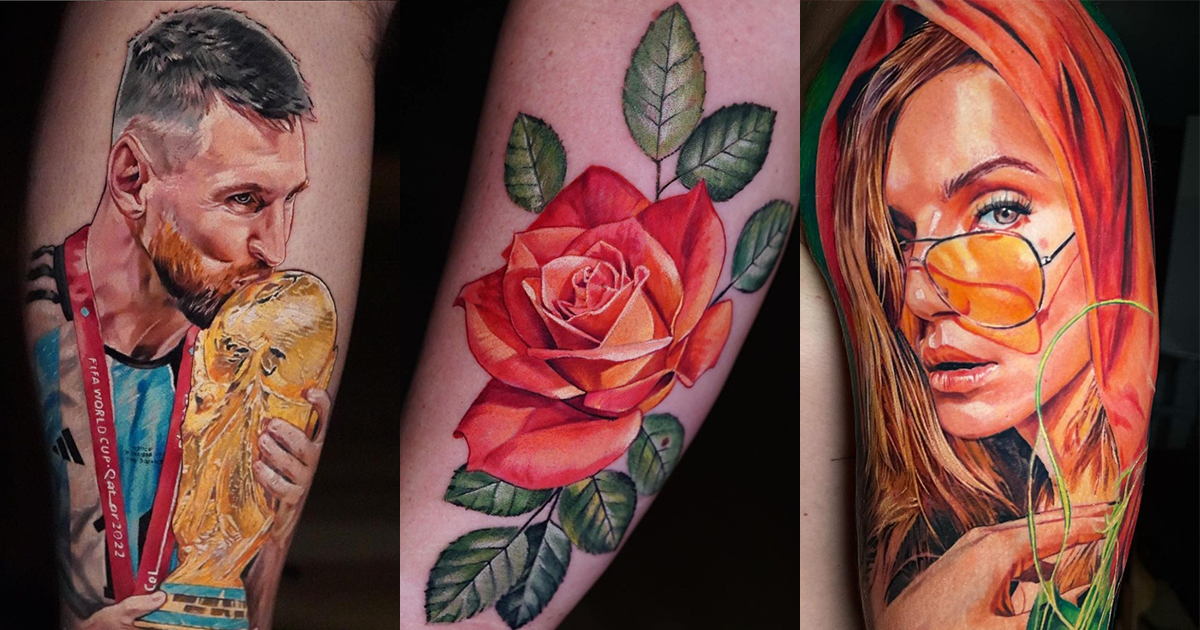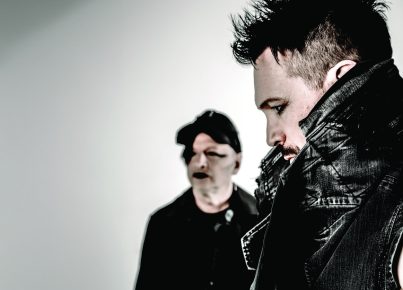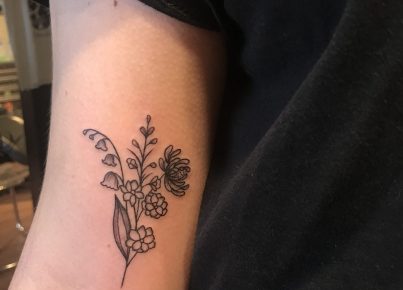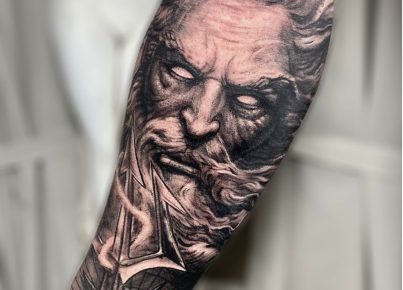Minutes after Lionel Messi raised the World Cup trophy into the air, Emmanuel Fortunato got to work. The Argentinian artist was filled with joy—he’d been dreaming of this day his entire life—and to celebrate he wanted to be one of the very first tattooers to do a portrait of Messi kissing the cherished trophy. By the time the confetti was removed from the pitch in Qatar, Fortunato completed his gorgeous color realism portrait. We talked with the artist to learn about how he found his way to color realism, his world travels to tattoo and more.
When did you first develop an interest in art?
My interest in art awoke as a need for expression from a very young age. Drawing was my first language, my first link with the world. As a son of a single mother who had several jobs to support us, drawing was my first friend. It was my personal space, basically my everything.
How did you become a tattoo artist? Did you have an apprenticeship?
I think tattooing found me almost by chance. Although I got my first tattoo when I was very young, it was not my primary intention to become a tattoo artist. It was not until some friends gave me a tattoo machine when I was 15. From the moment I made my first tattoo, a universe of questions flooded my mind. I needed to learn how to replicate what my eyes saw. I would have liked to be able to have some kind of learning, but where I come from there were not many resources or many artists willing to teach. I consider myself a self-taught lover of the work of my peers.
What is the tattoo scene like in Argentina? What made you want to move to New York to further your career?
Argentina is very talented, I am lucky to have many friends in Argentina with whom I share the love of tattooing. However, if you want to grow, you have to leave the nest. Many years ago I decided to travel to learn. I lived in Europe for two years. One year ago I moved to New York, due to the level of competition and market demand. Today I can say that I have found a home in NYC and I enjoy being able to work together with the best artists of the moment. There is no better school than surrounding yourself with the best.
What led you to color realism?
Color realism was always something that seemed very complex to me, with multiple factors of great importance. I think the challenge of achieving an image with an identity that reflects a feeling is incredibly satisfying. When one understands that colors emotionally affect the viewer, new tools are acquired. In which case the work begins to take another direction, other values, more responsibilities and more rewards.
You also work in black-and-grey on occasion. Why do you like to switch it up? And what are some of the unique challenges each style presents?
Being able to work with both techniques makes me feel more comfortable when offering more options to my clients. At the same time it allows me to continue learning more about both styles. Each one has its rules and its techniques. One is very soft and delicate while the other is very concrete and specific. You have to change gears every time you change your style. It makes you dynamic.
Walk us through the process behind creating one of your tattoos.
For each piece I make, I need to work together with the client. I need to read the person I am going to work with, I need to know the story behind the tattoo. I see the client’s reactions to the images that emerge, and once I have that reading, then I can give my imprint.
What’s something you haven’t tattooed a lot of that you’d like to do more?
I have tattooed many animals and portraits, but it is something I will never get tired of. I would like to continue like this, tattooing portraits and animals, surreal compositions, with a little fire whenever possible.
You recently did an amazing collab with Koral Ladna. Can you tell us about the piece the two of you came up with? Why do you like to work with other artists and what are some of the challenges of doing so?
The collaboration I did with Koral was a piece that came from hours of designing and multiple trials and changes to achieve a unique result—with the added complexity of doing it at a convention. I think the most difficult part of a collaboration is to show the identity of both artists in a tattoo harmoniously.
On your website you talk about how the creative process behind a tattoo has to relate to both the client and the artist. How important is a connection with the client to your end result?
A tattoo is a commitment—first of all, to oneself for [the benefit of] the client, and secondly, between the client and the tattooist. It is a matter of respect and trust. That is why you have to generate a certain bond to achieve the best representation of what the client is looking for.
Where do you see your art going in the future?
My art is constantly evolving. I don’t have a lot planned, I’d rather let it follow its own path.






